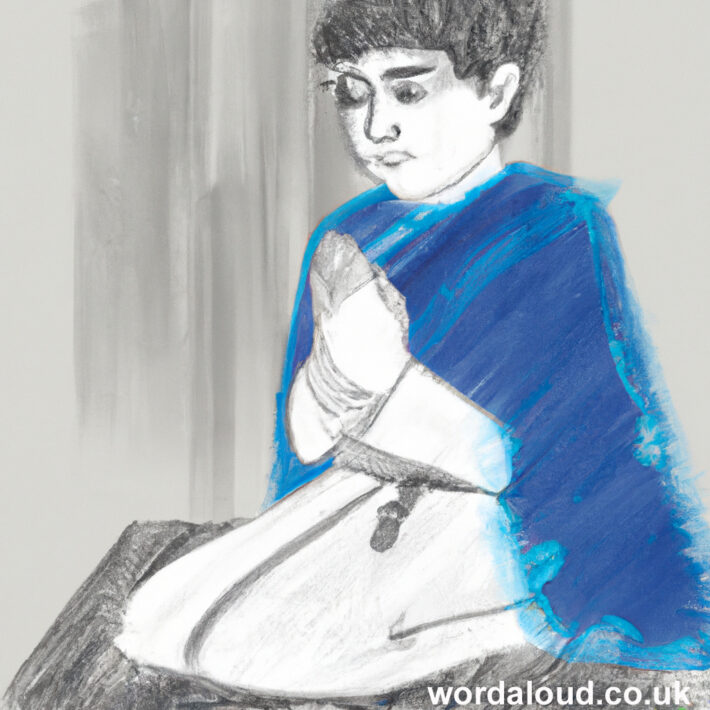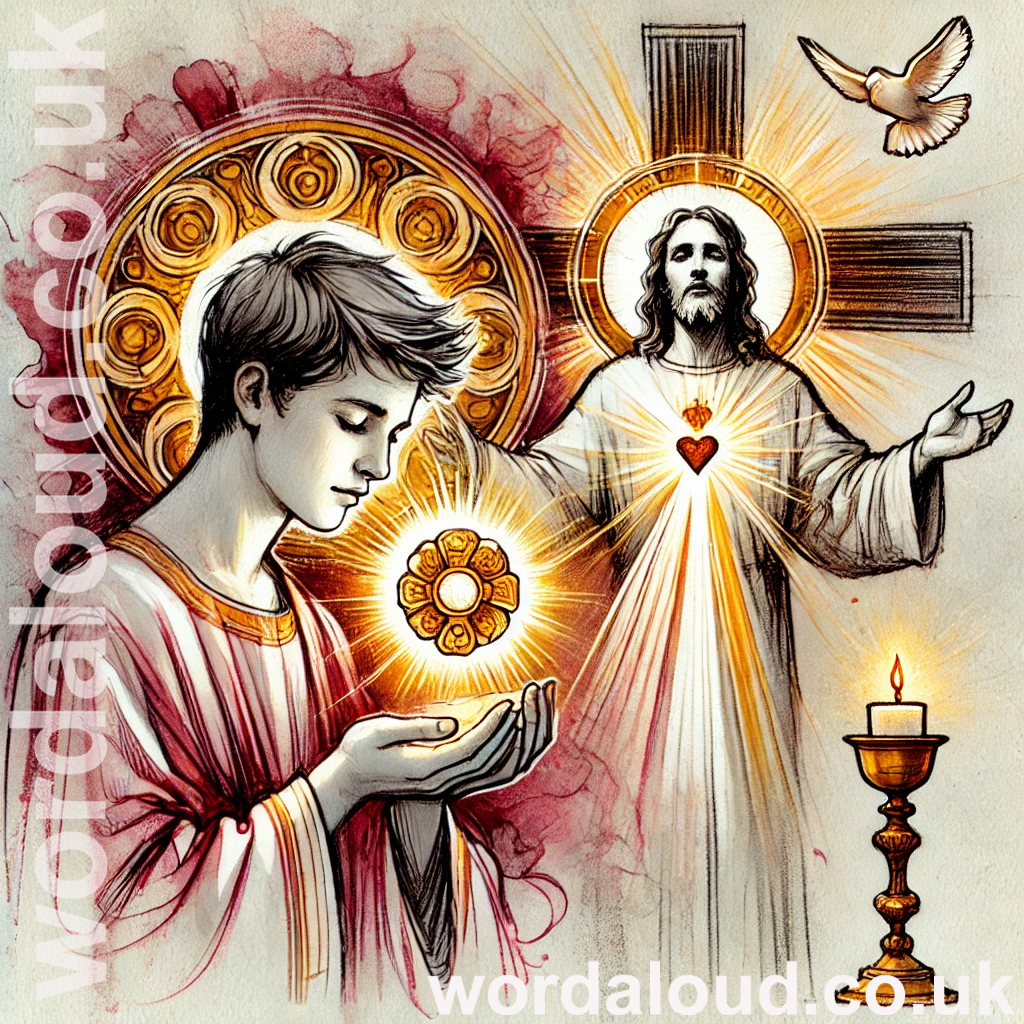Christian Art | Prayer With Jesus | Psalms | The Voice Of God | King David As A Boy
Psalm 30 | King James Audio Bible | Prayer To Jesus
YouTube: Psalm 30 KJV | King James Audio Bible | Word Aloud
Psalm 30 is a hymn of thanksgiving and praise, capturing the profound emotions of a soul who has experienced both adversity and deliverance. It is a deeply personal and heartfelt expression of gratitude to the Lord for His healing, salvation, and the transformation of sorrow into joy.
At the outset, the psalmist declares his intent to extol the Lord, attributing praise to God for the uplifting of his spirit and the prevention of his foes from rejoicing over him. This sets the tone for a hymn of thanksgiving and a reflection on the transformative power of God’s intervention.
The psalmist recounts a period of distress and suffering, marked by crying out to the Lord for healing. He acknowledges God’s role in bringing his soul back from the brink of the grave, preventing him from descending into the pit of despair. This theme of divine rescue and restoration runs throughout the psalm.
A significant aspect of Psalm 30 is the contrast between the night of weeping and the morning of joy. It conveys the idea that, while trials and sorrows may endure for a time, God’s favour ultimately brings about a dawn of joy and renewal.
The psalmist reflects on a moment of prosperity when he felt invulnerable but acknowledges that it was by God’s favour that he stood strong. This recognition underscores the psalm’s central message of dependence on God’s grace and deliverance.
The psalm concludes with a passionate commitment to praise and thanksgiving. The psalmist expresses a desire for glory to sing praise to the Lord, vowing to give thanks to God forever.
Psalm 26 | King James Audio Bible KJV
I will extol thee, O Lord; for thou hast lifted me up, and hast not made my foes to rejoice over me.
O Lord my God, I cried unto thee, and thou hast healed me.
O Lord, thou hast brought up my soul from the grave: thou hast kept me alive, that I should not go down to the pit.
Sing unto the Lord, O ye saints of his, and give thanks at the remembrance of his holiness.
For his anger endureth but a moment; in his favour is life: weeping may endure for a night, but joy cometh in the morning.
And in my prosperity I said, I shall never be moved.
Lord, by thy favour thou hast made my mountain to stand strong: thou didst hide thy face, and I was troubled.
I cried to thee, O Lord; and unto the Lord I made supplication.
What profit is there in my blood, when I go down to the pit? Shall the dust praise thee? Shall it declare thy truth?
Hear, O Lord, and have mercy upon me: Lord, be thou my helper.
Thou hast turned for me my mourning into dancing: thou hast put off my sackcloth, and girded me with gladness;
To the end that my glory may sing praise to thee, and not be silent. O Lord my God, I will give thanks unto thee forever.

Key Themes Of The Psalm For Reflection | Love Revealed By Jesus Christ
- Thanksgiving and Praise: The psalm is a hymn of gratitude, emphasizing the act of thanksgiving and praise to the Lord.
- Divine Healing and Salvation: It reflects on a period of distress and suffering, highlighting the role of God in healing and rescuing the psalmist from the brink of despair.
- Transformation of Sorrow into Joy: The psalm explores the contrast between the night of weeping and the morning of joy, illustrating how God’s favour brings renewal and joy even after trials.
- Dependence on God’s Grace: The psalmist acknowledges his dependence on God’s grace, recognizing that his strength and prosperity come from the Lord’s favour.
- Commitment to Continuous Praise: The psalm concludes with a passionate commitment to ongoing praise and thanksgiving, expressing a desire for perpetual gratitude and acknowledgment of God’s role in transformation.








